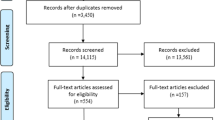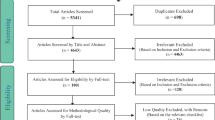Abstract
Objective
This study was conducted as a descriptive and cross-sectional study to determine the prevalence of constipation and the impact of constipation on quality of life in patients receiving outpatient chemotherapy.
Materials and methods
The data of the study were collected from 252 patients who applied to the outpatient chemotherapy unit of a university hospital between January 2021 and March 2021. The data were collected using the “Patient Information Form,” “Eastern Cooperative Oncology Group (ECOG) Performance Status Scale,” “Constipation Severity Scale (CSS),” “Patient Assessment of Constipation Quality of Life Questionnaire (PAC-QOL),” and “The Bristol Stool Form Scale” through face-to-face interview technique. In the analysis of data, numbers, percentile distributions, minimum and maximum values, mean values, and standard deviations, as well as t-test, were used in the comparison of paired groups in normally distributed measurements, while the analysis of variance (ANOVA) was used in the comparison of more than two groups.
Results
The constipation prevalence of the patients included in the study was 31.7% and the mean constipation severity score was 30.48 ± 13.87. It was found that the quality of life of the patients due to constipation was (71.79 ± 18.74) impacted adversely on a moderate level. A significant difference was found between sex, educational status, use of antiemetic and antiulcer medication, presence of hemorrhoid disease, ECOG score, appetite, and mean CSS and PAC-QOL scores (p < 0.05).
Conclusion
Constipation occurs in one-third of cancer patients receiving ambulatory chemotherapy. The severity of constipation in patients is at a moderate level and it impacts the quality of life moderately.
Similar content being viewed by others
Data availability
The datasets generated during and/or analyzed during the current study are available from the corresponding author on reasonable request.
References
McMillan SC, Tofthagen C, Small B, Karver S, Craig D (2013) Trajectory of medication-induced constipation. In Oncol Nurs Forum 40(3):E92-E100.https://doi.org/10.1188/13.ONF.E92-E100
Escalante J, McQuade RM, Stojanovska V, Nurgali K (2017) Impact of chemotherapy on gastrointestinal functions and the enteric nervous system. Maturitas 105:23–29. https://doi.org/10.1016/j.maturitas.2017.04.021
Şıra FS (2007) Evaluate of symptoms in oncology patients receiving chemotherapy. Master’s thesis, Marmara University
Wong ML, Paul SM, Cooper BA, Dunn LB, Hammer MJ, Conley YP, Miaskowski C (2017) Predictors of the multidimensional symptom experience of lung cancer patients receiving chemotherapy. Support Care Cancer 25(6):1931–1939. https://doi.org/10.1007/s00520-017-3593-z
Ayık DB, Can G (2020) Management of constipation and effectiveness of acupressure in palliative care patients. Health Care Acad J 7(2):141–148
Dean AG, Sullivan KM, Soe MM (2013) OpenEpi: Open Source Epidemiologic Statistics for Public Health, Version. [online]. Available from: https://www.openepi.com/Menu/OE_Menu.htm. Accessed 15.03.2020
Oken MM, Creech RH, Tormey DC et al (1982) Toxicity and response criteria of the eastern cooperative oncology group. Am J Clin Oncol 5(6):649–656
Lewis SJ, Heaton KW (1997) Stool form scale as a useful guide to intestinal transit time. Scand J Gastroenterol 32(9):920–924
Varma MG, Wang JY, Berian JR, Patterson TR, McCrea GL, Hart SL (2008) The constipation severity instrument: a validated measure. Dis Colon Rectum 51(2):162–172. https://doi.org/10.1007/s10350-007-9140-0
Kaya N, Turan N (2011) Reliability and validity of constipation severity scale. Turkiye Klinikleri J Med Sci 31(6):1491–1501
Marquis P, De La Loge C, Dubois D, McDermott A, Chassany O (2005) Development and validation of the patient assessment of constipation quality of life questionnaire. Scand J Gastroenterol 40(5):540–551. https://doi.org/10.1080/00365520510012208
Dedeli Ö, Turan G, Fadıloğlu Ç, Bor S (2007) A Validity and reliability of adaptation patient assessment of constipation quality of life scale. Med Netw J Intern Med 2(1–2):36–43
Erdem SS, Yılmaz M, Yıldırım H, Mayda AS, Bolu F, Durak AA, Şener Ö (2017) Information level on cancer and cancer risk factors living in Duzce. J DU Health Sci Inst 7(1):1–10
Hintistan S, Çilingir D, Nural N, Gürsoy AA (2012) Applications of patients with hematologic cancers for experienced symptoms due to chemotherapy. Gümüşhane University Journal of Health Sciences 1(3):153–164
Duran ET (2011) Alternative application for side effects of gynecologic cancer treatment. Med J SDU 18(2):72–77
Sánchez-Lara K, Ugalde-Morales E, Motola-Kuba D, Green D (2013) Gastrointestinal symptoms and weight loss in cancer patients receiving chemotherapy. Br J Nutr 109(5):894–897. https://doi.org/10.1017/S0007114512002073
Mardas M, Madry R, Stelmach-Mardas M (2017) Link between diet and chemotherapy related gastrointestinal side effects. Contemp Oncol 21(2):162–167. https://doi.org/10.5114/wo.2017.66896
Kaya RO, Taşpınar A (2020) The state of the prevalence of constipation in pregnancy and its relation with the quality of life. J Nursology 23(2):250–258. https://doi.org/10.17049/ataunihem.549074
Adıgüzel L, Demirbağ BC (2020) Evaluation the effect of chronic constipation on the quality of life in people aged 65 years and older. Journal of Adnan Menderes University Health Sciences Faculty 4(2):71–79. https://doi.org/10.46237/amusbfd.577351
Akman G (2016) Evaluation of quality of life in patients with colorectal cancer. Master’s thesis, Sakarya University
Belsey J, Greenfield S, Candy D, Geraint M (2010) Systematic review: impact of constipation on quality of life in adults and children. Aliment Pharmacol Ther 31(9):938–949. https://doi.org/10.1111/j.1365-2036.2010.04273.x
Yurdakul İ (2004) Constipation. Clinical approach in gastroenterology. Istanbul University Cerrahpaşa Faculty of Medicine Continuing Medical Education Activities, clinical approach in gastroenterology symposium series No: 38, İstanbul, March 2004, 121–132
Turan N, Nurten K, Kaya H, Öztürk A, Eskimez Z, Yalçın N (2011) Constipation problems of nursing students with respect to certain variables. FNJN 19(3):168–178
Suares NC, Ford AC (2011) Prevalence of, and risk factors for, chronic idiopathic constipation in the community: systematic review and meta-analysis. Am J Gastroenterol 106(9):1582–1591. https://doi.org/10.1038/ajg.2011.164
Wald A, Mueller-Lissner S, Kamm MA, Hinkel U, Richter E, Schuijt C, Mandel KG (2010) Survey of laxative use by adults with self-defined constipation in South America and Asia: a comparison of six countries. Aliment Pharmacol Ther 31(2):274–284. https://doi.org/10.1111/j.1365-2036.2009.04169.x
Tekbaş S (2010) The effects of quality of life and treatment care in gynecological cancer patients. Doctoral thesis, Trakya University
Ghobrial IM, Rajkumar SV (2003) Management of thalidomide toxicity. J Support Oncol 1(3):194–205
Stojanovska V, Sakkal S, Nurgali K (2015) Platinum-based chemotherapy: gastrointestinal immunomodulation and enteric nervous system toxicity. Am J Physiol Gastrointest Liver Physiol 308(4):223–232. https://doi.org/10.1152/ajpgi.00212.2014
Yıldırım KN, Kaçmaz N, Özkan M (2013) Unmet care needs in advanced stage cancer patients. J Psychiatr Nurs 4(3):153–158. https://doi.org/10.5505/phd.2013.63825
Hanai A, Ishiguro H, Sozu T, Tsuda M, Arai H, Mitani A, Tsuboyama T (2016) Effects of a self-management program on antiemetic-induced constipation during chemotherapy among breast cancer patients: a randomized controlled clinical trial. Breast Cancer Res Treat 155(1):99–107. https://doi.org/10.1007/s10549-015-3652-4
Abramowitz L, Béziaud N, Labreze L, Giardina V, Caussé C, Chuberre B, Perrot S (2013) Prevalence and impact of constipation and bowel dysfunction induced by strong opioids: a cross-sectional survey of 520 patients with cancer pain: DYONISOS study. J Med Econ 16(12):1423–1433. https://doi.org/10.3111/13696998.2013.851082
Dhingra L, Shuk E, Grossman B, Strada A, Wald E, Portenoy A, Portenoy R (2013) A qualitative study to explore psychological distress and illness burden associated with opioid-induced constipation in cancer patients with advanced disease. Palliat Med 27(5):447–456. https://doi.org/10.1177/0269216312450358
Coyne KS, Sexton C, LoCasale RJ, King FR, Margolis MK, Ahmedzai SH (2016) Opioid-induced constipation among a convenience sample of patients with cancer pain. Front Oncol 6:131–137. https://doi.org/10.3389/fonc.2016.00131
Rumman A, Gallinger ZR, Liu LW (2016) Opioid induced constipation in cancer patients: pathophysiology, diagnosis and treatment. Expert Rev Qual Life Cancer Care 1(1):25–35. https://doi.org/10.1080/23809000.2016.1131595
Crawford AA, Lewis S, Nutt D, Peters TJ, Cowen P, O’Donovan MC, Lewis G (2014) Adverse effects from antidepressant treatment: randomised controlled trial of 601 depressed individuals. Psychopharmacology 231(15):2921–2931. https://doi.org/10.1007/s00213-014-3467-8
Sanchez C, Chinn BT (2011) Hemorrhoids. Clin Colon Rectal Surg 24(1):5–13
Arora G, Mannalithara A, Mithal A, Triadafilopoulos G, Singh G (2012) Concurrent conditions in patients with chronic constipation: a population-based study. PLoS ONE 7(10):1–5. https://doi.org/10.1371/journal.pone.0042910
Yücel BO, Karadağ M (2020) Pre-treatment constipation problem experienced by the patients who received interventional hemorroid treatment and determining their life quality. J Turk Nurs Assoc 1(2):15–26
Süren M, Doğru S, Önder Y, Çeltek NY, Okan İ, Çıtıl R, Karaman S, Başol N (2015) The evaluation of the symptom clusters in patients with the diagnosis of terminal stage cancer. Agri 27(1):12–17. https://doi.org/10.5505/agri.2015.07752
Shen L, Huang C, Lu X, Xu X, Jiang Z, Zhu C (2019) Lower dietary fibre intake, but not total water consumption, is associated with constipation: a population-based analysis. J Hum Nutr Diet 32(4):422–431. https://doi.org/10.1111/jhn.12589
Korkut E, Özden A (2017) Chronic constipation treatment and polyethylene glycol. Current Gastroenterology 21(4):334–336
Orhan C, Akbayrak T, Kaya KT, Günel MK (2015) Relationship between severity of constipation and physical activity level. J Exerc Ther Rehabil 2(2):66–73
Author information
Authors and Affiliations
Contributions
All authors contributed to the study conception and design. Material preparation, data collection, and analysis were performed by Nesrin Nural, Zeynep Pehlivan. The first draft of the manuscript was written by Zeynep Pehlivan and all authors commented on previous versions of the manuscript. All authors read and approved the final manuscript.
Corresponding author
Ethics declarations
Ethics approval
Ethical approval was obtained from Recep Tayyip Erdoğan University Non-Interventional Clinical Research Ethics Committee (2021/42), and institutional permissions were obtained from hospital administrations to start the study. All information was collected in accordance with the Declaration of Helsinki.
Consent to participate
Informed consent was obtained from all individual participants included in the study.
Consent for publication
Informed consent was obtained from all individual participants included in the study.
Conflict of interest
The authors declare no competing interests.
Additional information
Publisher's note
Springer Nature remains neutral with regard to jurisdictional claims in published maps and institutional affiliations.
Rights and permissions
About this article
Cite this article
Pehlivan, Z., Nural, N. Prevalence of constipation in patients undergoing chemotherapy and the effect of constipation on quality of life. Support Care Cancer 30, 8019–8028 (2022). https://doi.org/10.1007/s00520-022-07244-7
Received:
Accepted:
Published:
Issue Date:
DOI: https://doi.org/10.1007/s00520-022-07244-7




